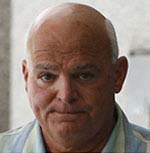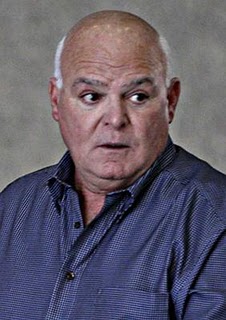Kenny, who is a practicing Roman Catholic, seemed most enraged at the church’s willful fight to not even acknowledge the wrongdoing perpetrated by its priests. “The rape and torture of children were downplayed or ‘managed’ to uphold instead the primacy of the institution, its power, standing and ‘reputation’.”
Kenny is not the only Irish politician to publicly speak out against the Catholic Church.
Sinn Féin’s Caoimhghín O Caoláin railed against the Vatican, calling the report a “damning indictment” of the Roman Catholic Church and its policies. Charlie McConalogue, Fianna Fáil Spokesperson on Children, said that the treatment of the abused children in Cloyne was “shocking, awful and unforgivable.”
Speaking out against the Catholic Church is a new phenomenon in Ireland, particularly among politicans. Catholic preists have long held an unofficial position of power in Irish society. The Catholic Church runs most of the primary and secondary schools in Ireland, as well as the majority of orphanages.
In the wake of all this negative press, The Vatican has recalled Archbishop Giuseppe Leanza, Papal Nuncio to Ireland. While this move is supposedly to bring Leanza back to the Holy See to help craft a response to the Cloyne Report, a Vatican official reported that this abrupt withdrawal of the church’s diplomat “does not exclude some degree of surprise and disappointment at certain excessive reactions.”




3 Comments
Schism is the wrong term in this context. The Greeks and the Roman Catholic Church have a schism; the Republic of Ireland and the Roman Catholic Church do not.
Use “divide,” “discord,” or any other term, but, technically, “schism” is not correct here.
Actually, technically you are incorrect. A schism, in the simplest sense, is a division.
Merriam webster lists the first definition of schism as:
division, separation; also : discord, disharmony
Dictionary.com lists it as:
division or disunion, especially into mutually opposed parties.
I am obviously aware that the word can have ecclesiastical connotations, but that was part of the tease in the use. The possible religious application is meant to highlight that this is a struggle between two countries, one of which is a religious institution and the other a state trying to decide whether to further divorce religious and secular matters.
As a side note, there is actually some talk (yet again) of a movement to separate the Irish Catholic Church from Rome:
http://www.newrossstandard.ie/sport/gaelic-football/is-it-time-for-the-irish-church-to-break-from-the-vatican-2831703.html
http://www.independent.ie/opinion/analysis/stifled-by-weight-of-romes-pomp-power-and-stubborn-patriarchy-2835994.html
Right, I know all that. I’m familiar with the different meanings/usages. But in a religious sense, there’s simply no “schism” whatsoever in Ireland with regard to the Catholic Church.
I cannot envisage a Church of Ireland. (It would be too “English” if you know what I mean.) I think it would become a thoroughly secular state before its Catholics splinter off and form the Church of Ireland.
I’ll eat my hat if it should ever come to pass, though. (And post a video feed of the hat-eating to the ANP threads.)
By the way, if someone wants to see a hilarious Irish TV show, go to your local library or log on to Netflix and order “Father Ted.” It is one of the funniest, best shows that has been on TV in the last 15-years. If you like the Simpsons, you’ll like Father Ted. It’s about 3 Irish priests who live in a rectory on an island in Northern Ireland. Great stuff. A must for any Catholic.